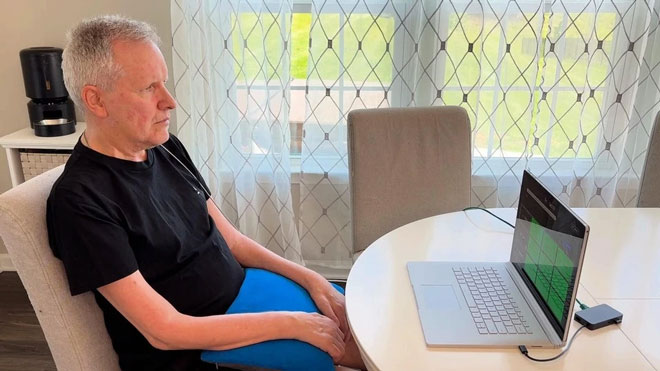The first person to have ChatGPT implanted in the brain to support operations on electronic devices
Mark was diagnosed with amyotrophic lateral sclerosis (ALS) in 2021, so he can no longer use his hands. He, along with nine others, participated in clinical trials of Synchron's ChatGPT-integrated BCI implant.

Currently, with the help of BCI, entering messages word by word is still time-consuming. However, the addition of AI will make communication faster and easier through the ability to absorb relevant context. Artificial intelligence can assist in predicting responses and providing users with a list of possible options in each conversation.
Mark shared that sometimes ChatGPT will let out a curse word, and I often do that too.
Tom Oxley, CEO of Synchron, said the integration of AI into brain implant chips is still underway. Over the past year or so, Synchron has been testing various AI models. OpenAI's release of ChatGPT-4o in May opened up some exciting new possibilities.
Oxley also said the company is not tied to a particular major language model but will adopt systems that best serve patient needs.
Synchron's brain implant chip is called stentrode. The chip will be inserted inside a blood vessel near the motor cortex, the part of the brain that controls human movement.
Users simply think about moving and the BCI will interpret those thoughts to perform the desired action on the device such as a click or selection using Synchron BCI.
Synchron's BCI currently costs $50,000-100,000, which is comparable to the cost of other implantable medical devices such as pacemakers or cochlear implants.
You should read it
- ★ Researchers are getting closer to creating a complete human brain simulation chip
- ★ Can Neuralink's brain chip be hacked?
- ★ The human brain simulation chip consumes almost no energy when there is no input information
- ★ Transplant the chip into your hand to pay the train ticket in Sweden
- ★ 32M became the first company to implant microchips into employees